



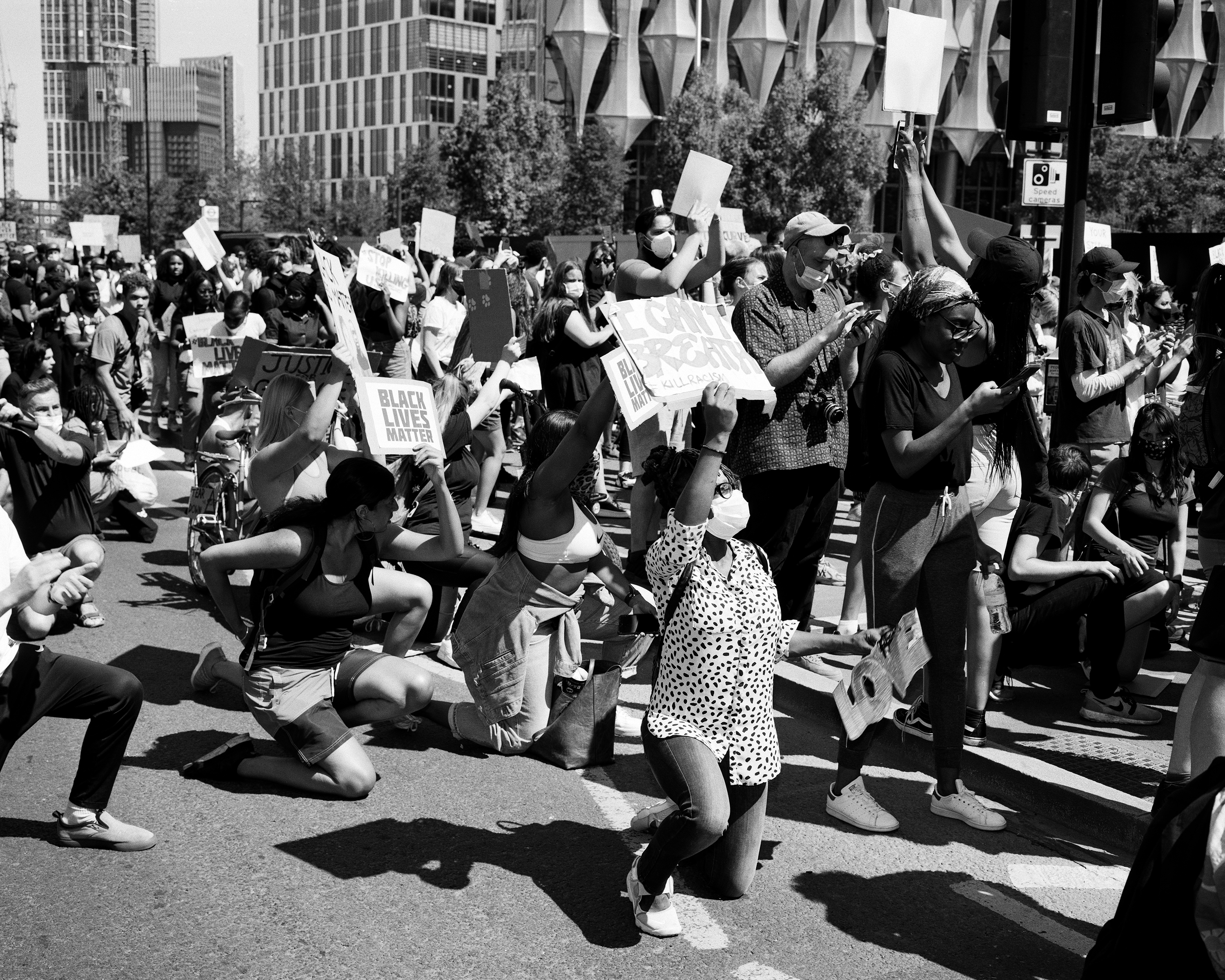
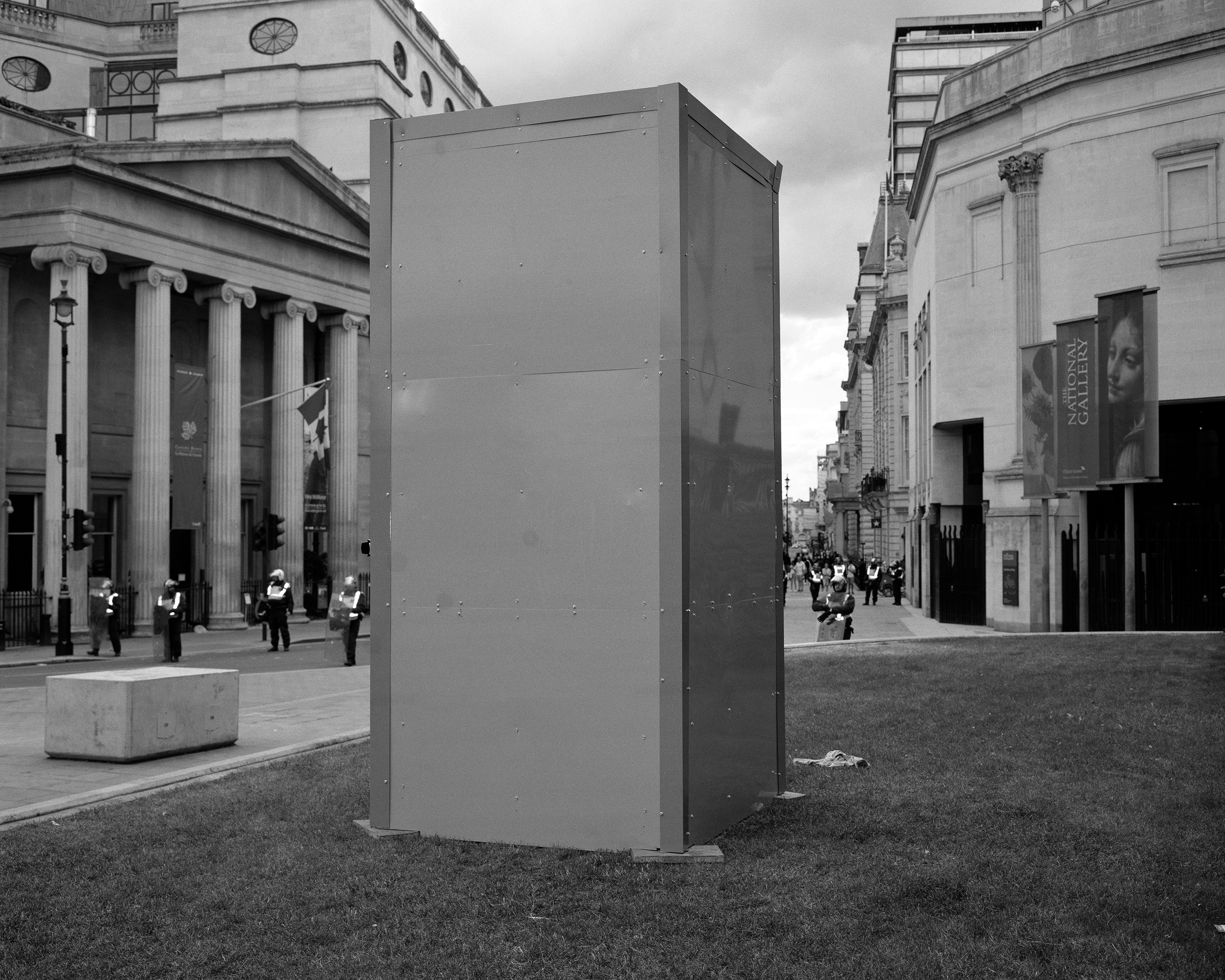


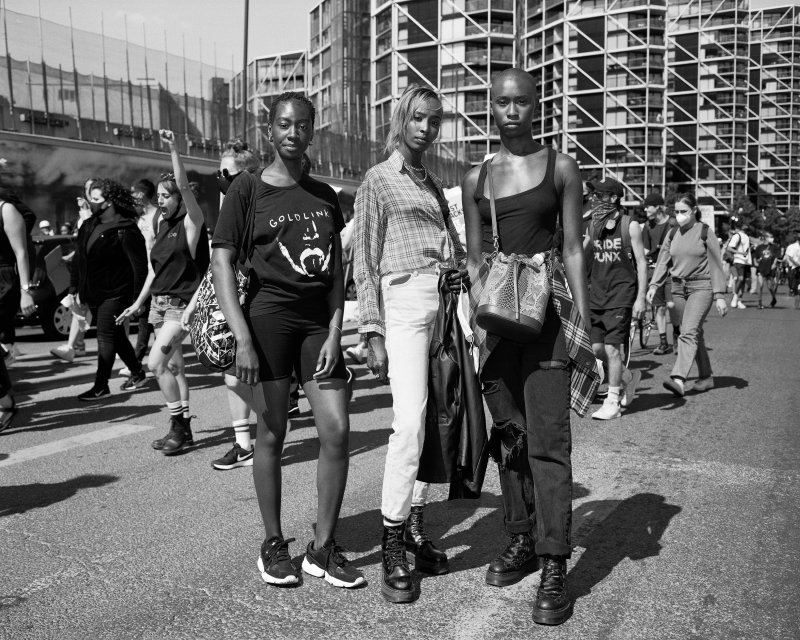
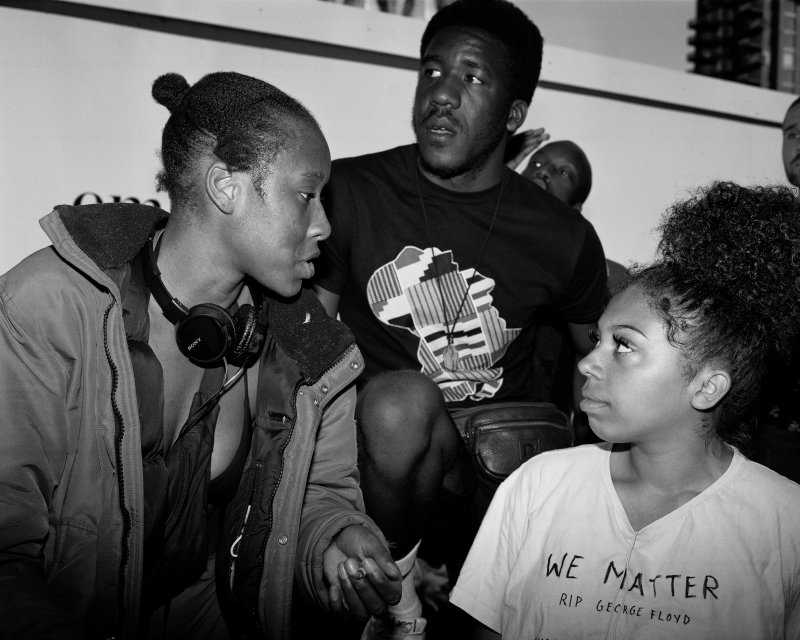


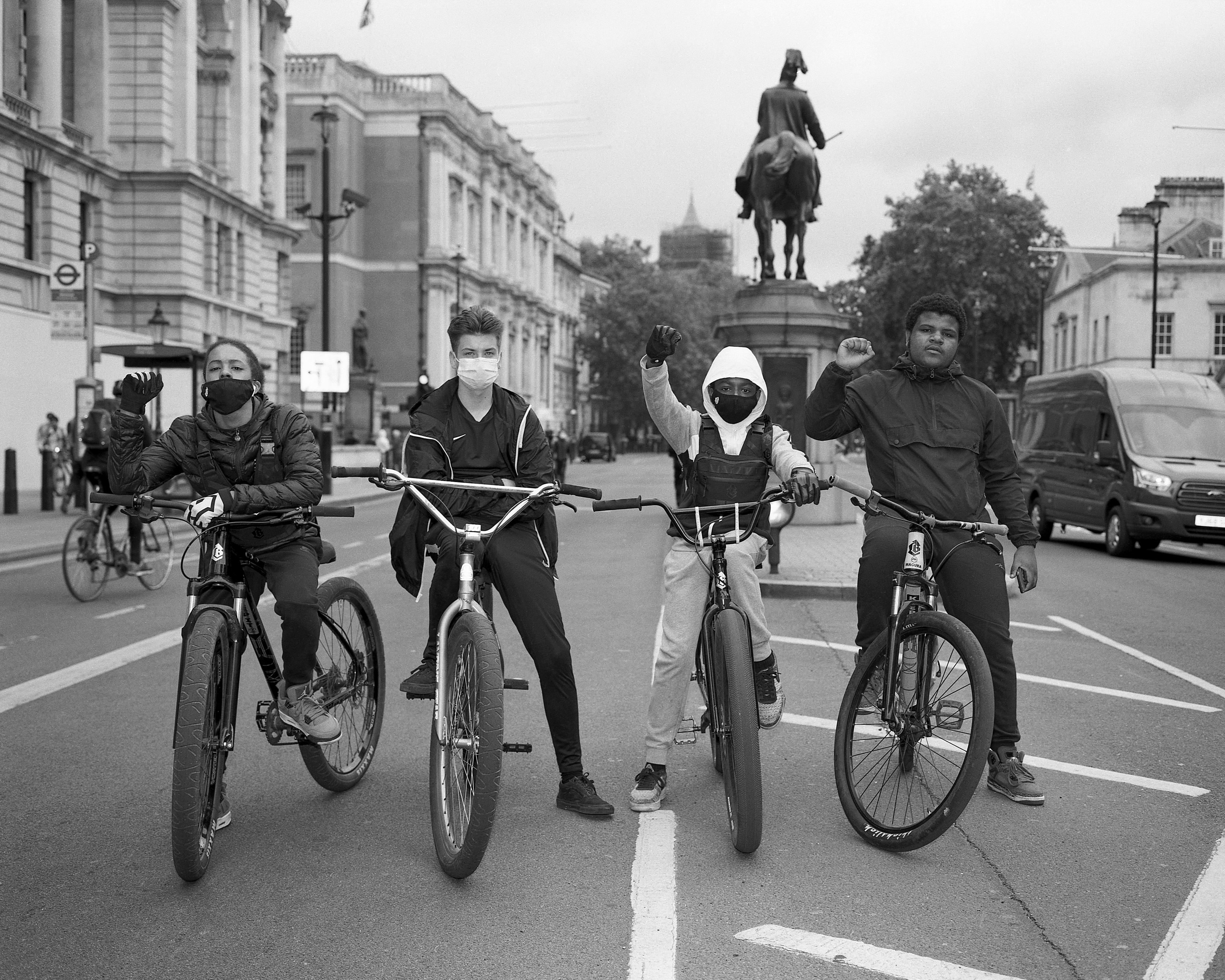


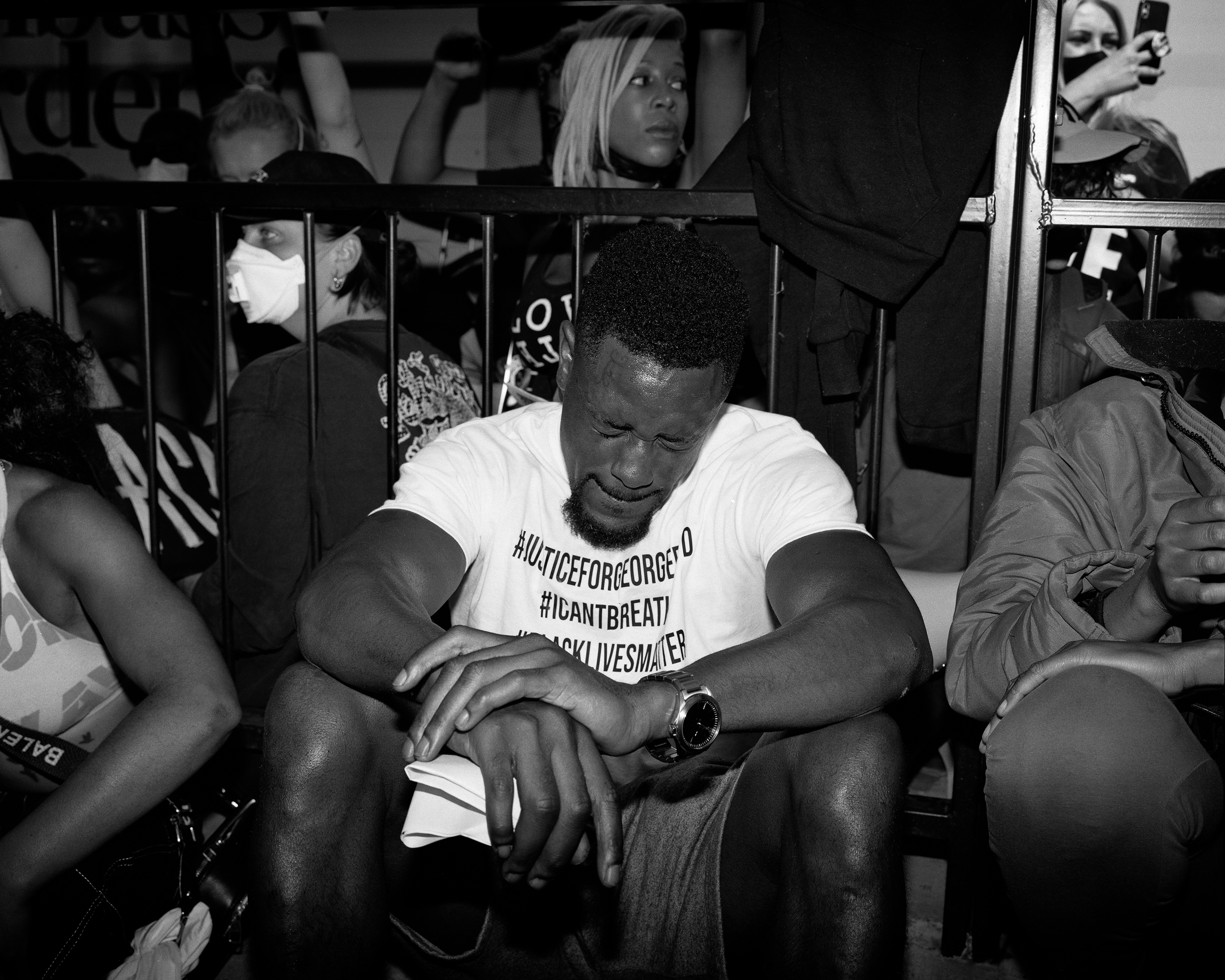



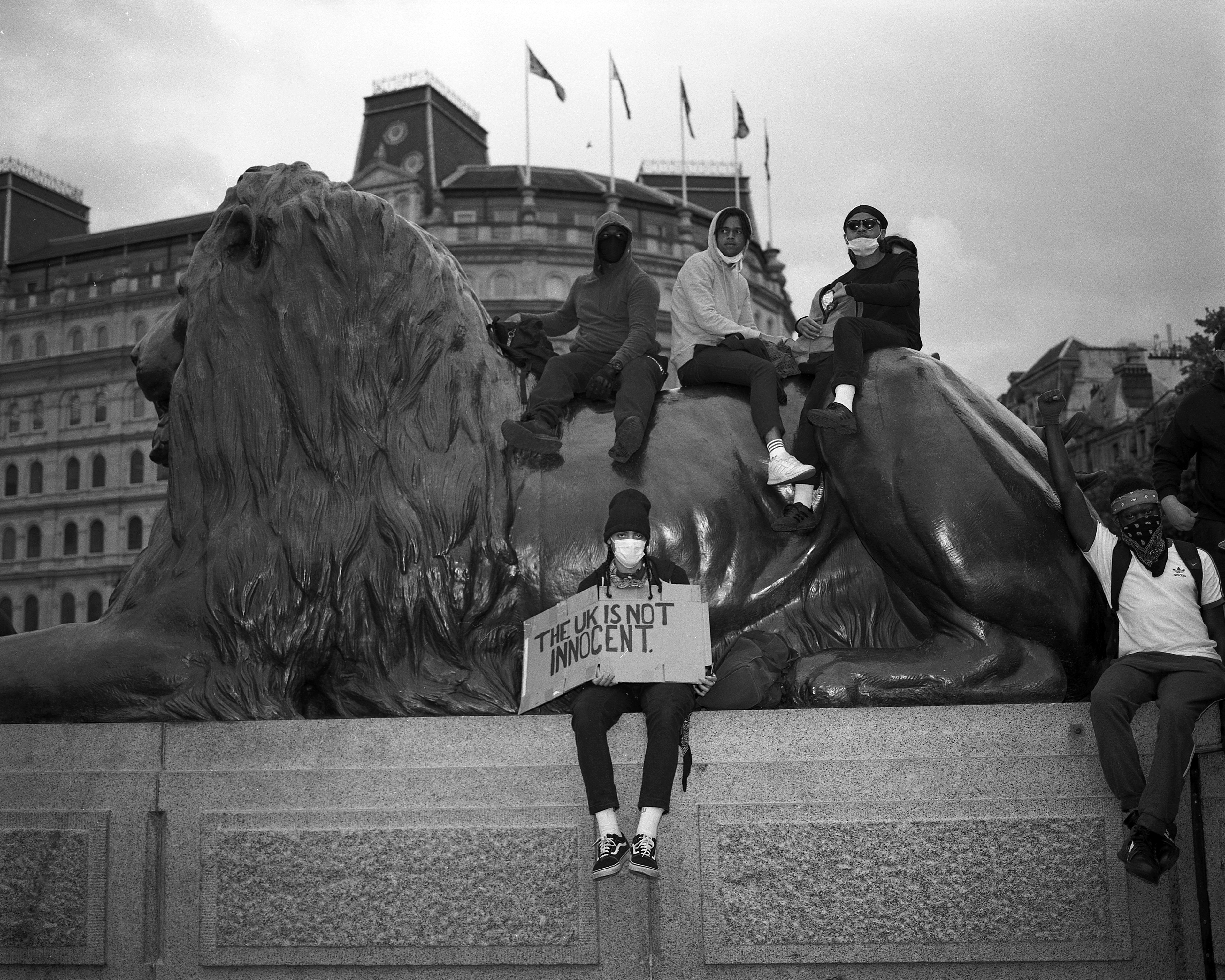






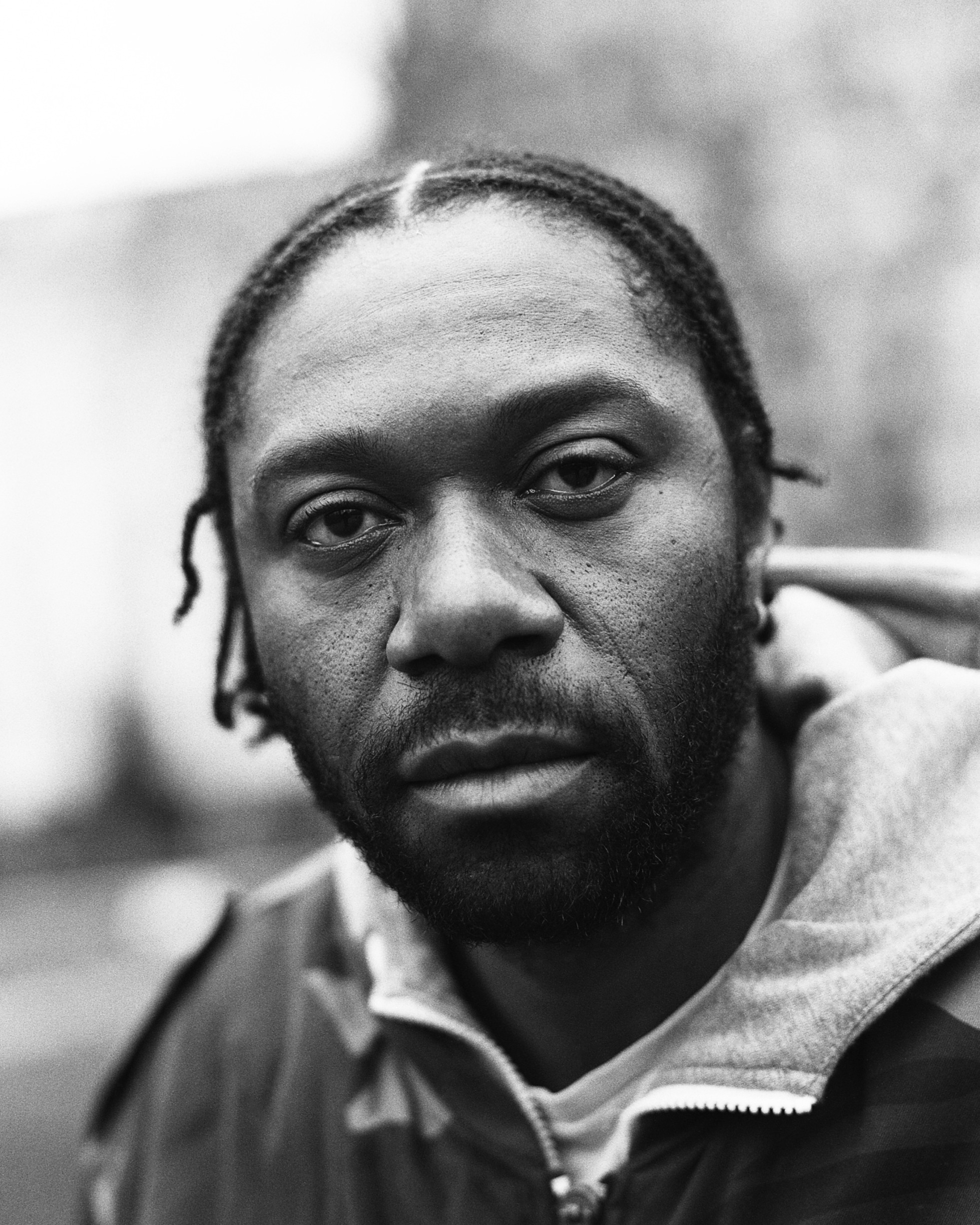

The project began in May 2020 as a record of London’s involvement with the global anti-racism movement, sparked by the unlawful killing of George Floyd, a 46-year-old black man, in Minneapolis, Minnesota, by a white police officer during an arrest for allegedly using a counterfeit bill. Following this unforgettable event, a widely supported movement of international anti-racis demonstrations spread, striking a chord with populations during a global pandemic.
During this period, Britain was facing the highest Coronavirus death toll in Europe and the government had only recently begun to lift restrictions designed to get the virus under control in the country Although large public gatherings remain banned, the unlawful killing of George Floyd in Minneapolis sparked mass protests in Britain and prompted a reckoning with how its role in the slave trade and its history of colonialism and empire related to discrimination in today's society.
Following a period of isolation and confusion a diverse group of citizens united to show solidarity against racism. The protests seeking justice for the unlawful killing heightened the debate surrounding systematic historical racism in the U.S.A and Europe.
I continued to document the anti-racism demonstrations in central London throughout the year, commencing on the 31st of May 2020. One of the pivotal demonstrations was later referred to online as the “Battle of Trafalgar Square”. This eventful day saw anti-racism demonstrators clash with groups of British Nationalists who sought to protect historical monuments and war memorials from damage.
My interactions with the protesters during the demonstrations allowed me to develop the narrative of this work and build relationships with some of the people photographed. I remained in contact and developed conversations with various passionate anti-racism demonstrators and later reconnected to make a further set of portraits away from the protests. These further portraits and the subsequent dialogue reflect on the historical events of 2020 and the reality of seeking to bring about systemic change.
This project questions what it means to be British today and how we view our past alongside contentious identity issues in modern society.
During this period, Britain was facing the highest Coronavirus death toll in Europe and the government had only recently begun to lift restrictions designed to get the virus under control in the country Although large public gatherings remain banned, the unlawful killing of George Floyd in Minneapolis sparked mass protests in Britain and prompted a reckoning with how its role in the slave trade and its history of colonialism and empire related to discrimination in today's society.
Following a period of isolation and confusion a diverse group of citizens united to show solidarity against racism. The protests seeking justice for the unlawful killing heightened the debate surrounding systematic historical racism in the U.S.A and Europe.
I continued to document the anti-racism demonstrations in central London throughout the year, commencing on the 31st of May 2020. One of the pivotal demonstrations was later referred to online as the “Battle of Trafalgar Square”. This eventful day saw anti-racism demonstrators clash with groups of British Nationalists who sought to protect historical monuments and war memorials from damage.
My interactions with the protesters during the demonstrations allowed me to develop the narrative of this work and build relationships with some of the people photographed. I remained in contact and developed conversations with various passionate anti-racism demonstrators and later reconnected to make a further set of portraits away from the protests. These further portraits and the subsequent dialogue reflect on the historical events of 2020 and the reality of seeking to bring about systemic change.
This project questions what it means to be British today and how we view our past alongside contentious identity issues in modern society.
The project began in May 2020 as a record of London’s involvement with the global anti-racism movement, sparked by the unlawful killing of George Floyd, a 46-year-old black man, in Minneapolis, Minnesota, by a white police officer during an arrest for allegedly using a counterfeit bill. Following this unforgettable event, a widely supported movement of international anti-racis demonstrations spread, striking a chord with populations during a global pandemic.
During this period, Britain was facing the highest Coronavirus death toll in Europe and the government had only recently begun to lift restrictions designed to get the virus under control in the country Although large public gatherings remain banned, the unlawful killing of George Floyd in Minneapolis sparked mass protests in Britain and prompted a reckoning with how its role in the slave trade and its history of colonialism and empire related to discrimination in today's society.
Following a period of isolation and confusion a diverse group of citizens united to show solidarity against racism. The protests seeking justice for the unlawful killing heightened the debate surrounding systematic historical racism in the U.S.A and Europe.
I continued to document the anti-racism demonstrations in central London throughout the year, commencing on the 31st of May 2020. One of the pivotal demonstrations was later referred to online as the “Battle of Trafalgar Square”. This eventful day saw anti-racism demonstrators clash with groups of British Nationalists who sought to protect historical monuments and war memorials from damage.
My interactions with the protesters during the demonstrations allowed me to develop the narrative of this work and build relationships with some of the people photographed. I remained in contact and developed conversations with various passionate anti-racism demonstrators and later reconnected to make a further set of portraits away from the protests. These further portraits and the subsequent dialogue reflect on the historical events of 2020 and the reality of seeking to bring about systemic change.
This project questions what it means to be British today and how we view our past alongside contentious identity issues in modern society.
During this period, Britain was facing the highest Coronavirus death toll in Europe and the government had only recently begun to lift restrictions designed to get the virus under control in the country Although large public gatherings remain banned, the unlawful killing of George Floyd in Minneapolis sparked mass protests in Britain and prompted a reckoning with how its role in the slave trade and its history of colonialism and empire related to discrimination in today's society.
Following a period of isolation and confusion a diverse group of citizens united to show solidarity against racism. The protests seeking justice for the unlawful killing heightened the debate surrounding systematic historical racism in the U.S.A and Europe.
I continued to document the anti-racism demonstrations in central London throughout the year, commencing on the 31st of May 2020. One of the pivotal demonstrations was later referred to online as the “Battle of Trafalgar Square”. This eventful day saw anti-racism demonstrators clash with groups of British Nationalists who sought to protect historical monuments and war memorials from damage.
My interactions with the protesters during the demonstrations allowed me to develop the narrative of this work and build relationships with some of the people photographed. I remained in contact and developed conversations with various passionate anti-racism demonstrators and later reconnected to make a further set of portraits away from the protests. These further portraits and the subsequent dialogue reflect on the historical events of 2020 and the reality of seeking to bring about systemic change.
This project questions what it means to be British today and how we view our past alongside contentious identity issues in modern society.
Link to Side Gallery Exhibition
Link to Newstatesman Article